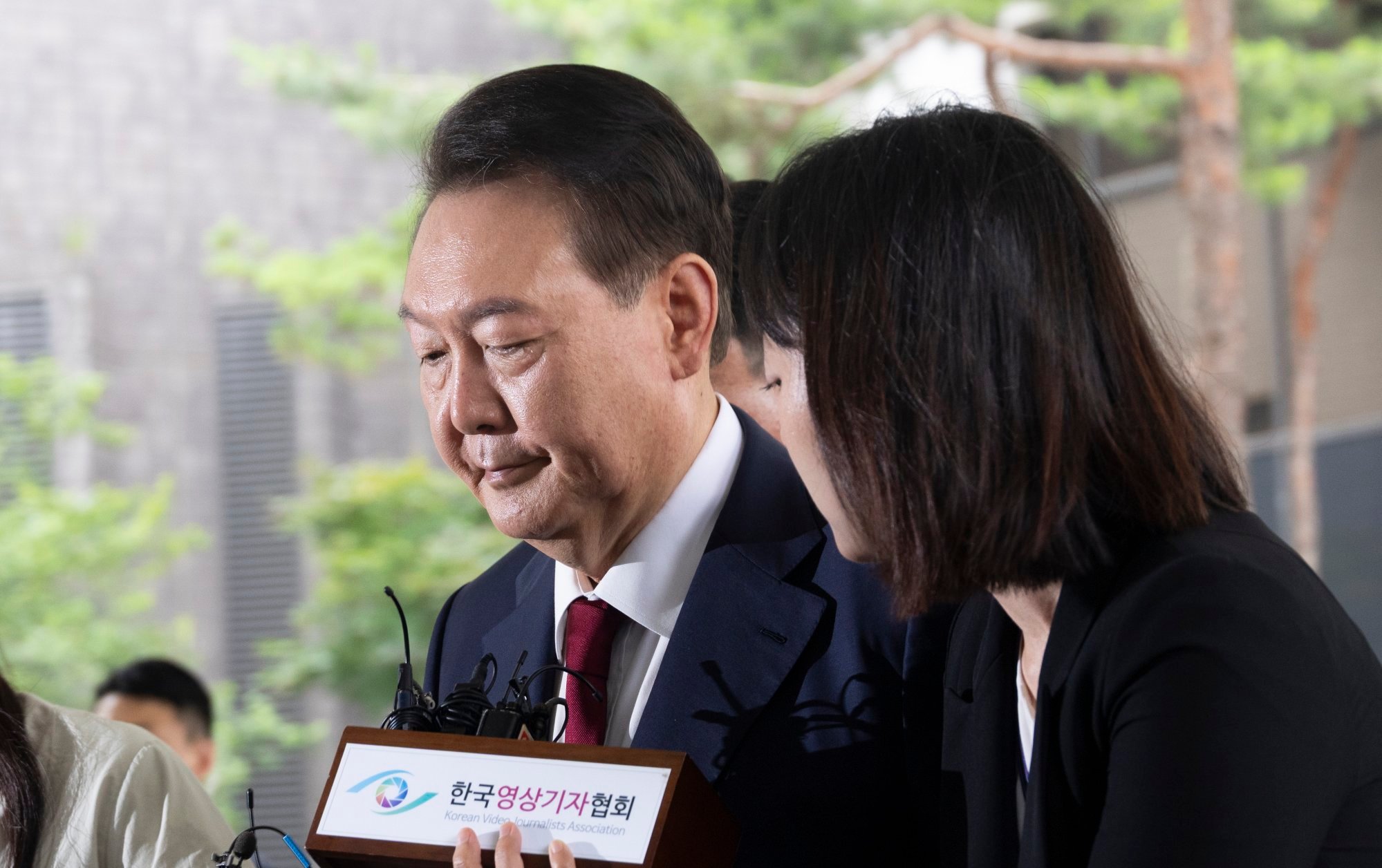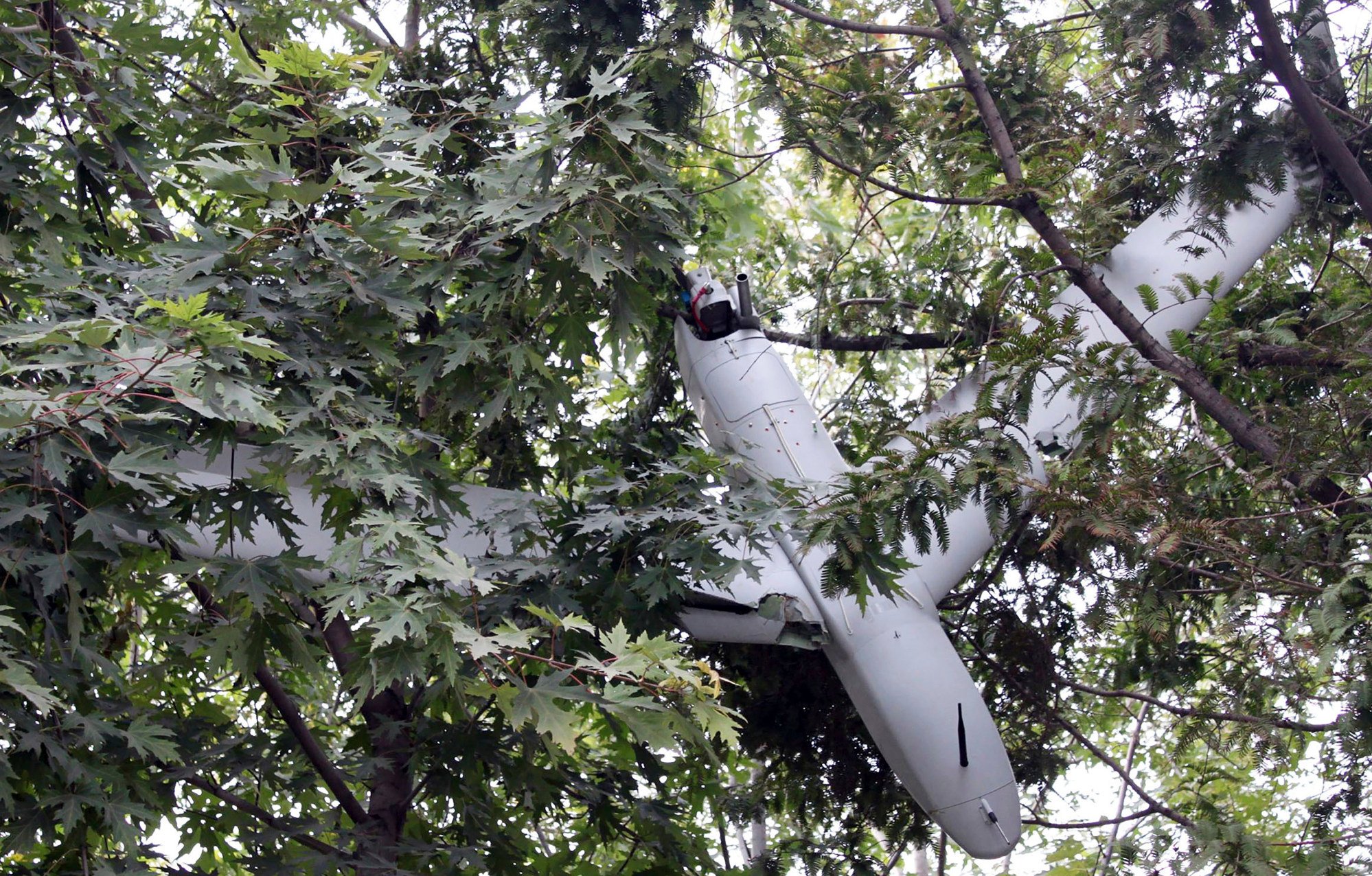Did South Korea’s Yoon order drones into Pyongyang to justify martial law?
Secret recording could amount to ‘smoking gun’ that Yoon sought to manufacture crisis to legitimise extending his presidency, observers say

A secret recording suggesting South Korea’s former president Yoon Suk-yeol may have ordered drone missions over Pyongyang in a bid to trigger a North Korean military response is now at the centre of the investigation into his December martial law debacle.
Special prosecutors probing Yoon for insurrection and foreign aggression incitement believe the audio files could amount to a “smoking gun” – offering evidence he sought to manufacture a crisis to legitimise extending his presidency, observers said.
“Yoon now faces allegations that, instead of fulfilling his duty to protect the people as commander-in-chief, he jeopardised their safety in an unlawful attempt to extend his rule,” Yang Moo-jin, president of the University of North Korean Studies, told This Week in Asia.
The former leader declared martial law on December 3, citing unspecified threats from North Korea and “anti-state forces” threatening democracy, as well as a legislative deadlock caused by opposition control of the National Assembly.
“If the North had responded militarily, it could have sparked armed conflict along the border – and potentially escalated into an all-out war,” Yang said.

According to reports from both the conservative Dong-A Ilbo and the progressive Kyunghyang Shinmun newspaper, special prosecutors investigating Yoon on insurrection charges have secured a recording of military officers quoting Drone Operations Commander Kim Yong-dae as saying that the drone missions were ordered by “V” – believed to be shorthand for the former president.
In October 2024, North Korea publicly accused South Korea of flying drones over Pyongyang to drop anti-regime propaganda leaflets and released images of downed drones.
While it issued stern warnings of “forceful retaliation” if such acts were repeated, it stopped short of military action, reportedly focusing instead on dispatching troops to aid Russia’s war in Ukraine.
South Korea’s Ministry of National Defence has refused to confirm or deny the allegations.
Yoon’s former defence minister, Kim Yong-hyun, is also suspected of having ordered a retaliatory strike on the North’s balloon launch site – a move reportedly blocked by opposition from South Korea’s Joint Chiefs of Staff.

The recordings reportedly contain statements such as: “It was on V’s orders. We had to do it without the knowledge of the Defence Ministry and the Joint Chiefs of Staff.”
Another statement says: “We also had to carry out leaflet drops and deliberately flew the drones in ways to have it spotted to create a stir.”
One of the most striking excerpts reads: “When the North responded with angry threats, the VIP and the minister applauded. They were so pleased, the commander ordered us to do it again.”
Other recordings include statements such as: “We sent additional drones in November … When I later heard discussions about martial law, provocation, and a so-called North Wind operation, I felt deeply ashamed. That drone mission over Pyongyang had been used for such a purpose.”
The term “North Wind” refers to past conservative strategies aimed at stoking national security fears through North Korean provocations during election cycles – hoping to rally public support through a “rally-around-the-flag” effect.
Prosecutors reportedly view the recordings as evidence that Yoon deliberately attempted to provoke a North Korean attack to justify martial law.
Allegations that Yoon engaged in a “North Wind” operation are now seen as central to the special counsel’s case, particularly in relation to charges of foreign aggression incitement.
“If proven true, these actions could hand North Korea a propaganda victory,” said Jhee Byong-kuen, a political-science professor at Chosun University.
Jhee recalled the infamous “Bullet Wind Incident”, in which a former presidential aide and two others were jailed for secretly meeting North Koreans in Beijing before South Korea’s 1997 presidential election and requesting border area military displays to sway voters.
In 1996, then ruling conservatives were also accused of engineering a minor North Korean incursion across the demilitarised zone in exchange for food aid – allegedly to boost voter support ahead of parliamentary elections.
“What’s different this time is that Yoon and his allies are accused of directly provoking the North – without any prior contact with them,” Jhee said.
“Only war fanatics could think this way.”
If convicted, Yoon could face charges under Article 92 of the Criminal Act, which prohibits inciting foreign aggression. The article carries a sentence of death or life imprisonment.
Article 92 says: “A person who, in conspiracy with a foreign country, causes to commence hostilities against the Republic of Korea [South Korea], or who, in conspiracy with foreigners, fights against the Republic of Korea, shall be punished by death or imprisonment for life.”
Some lawmakers argue that the article does not apply, noting that Yoon did not conspire with North Koreans to instigate war.
Yoon’s successor, President Lee Jae-myung, and the ruling Democratic Party of Korea (DPK) have accused the former leader and his associates of provoking hostilities to legitimise martial law.
As evidence, the DPK points to intelligence tips and memos from retired intelligence commander Noh Sang-won, who was arrested for allegedly orchestrating the failed martial law scheme.
His notes reportedly contain phrases such as “induce North’s attack at the Northern Limit Line” and “garbage balloons”.
The term “garbage balloons” refers to gas-filled balloons carrying rubbish sent by North Korea in retaliation for the South’s leaflet campaigns in November.
Yoon, meanwhile, has persistently refused to appear for questioning, prompting prosecutors to seek an arrest warrant to detain him again. He was released in March on procedural grounds after 52 days in custody.
Prosecutors questioned Yoon for several hours on June 28, and scheduled a second session for Saturday.
Separately, the special prosecutor team investigating Yoon’s wife, Kim Keon-hee, officially opened its office on Wednesday.
“All investigations will proceed without excess or bias,” Chief Special Prosecutor Min Joong-ki told reporters.
“We will adhere strictly to legal procedures. We ask for the public’s understanding and support.”
The probe into Kim covers 16 separate allegations, including stock manipulation, corruption and abuse of power.